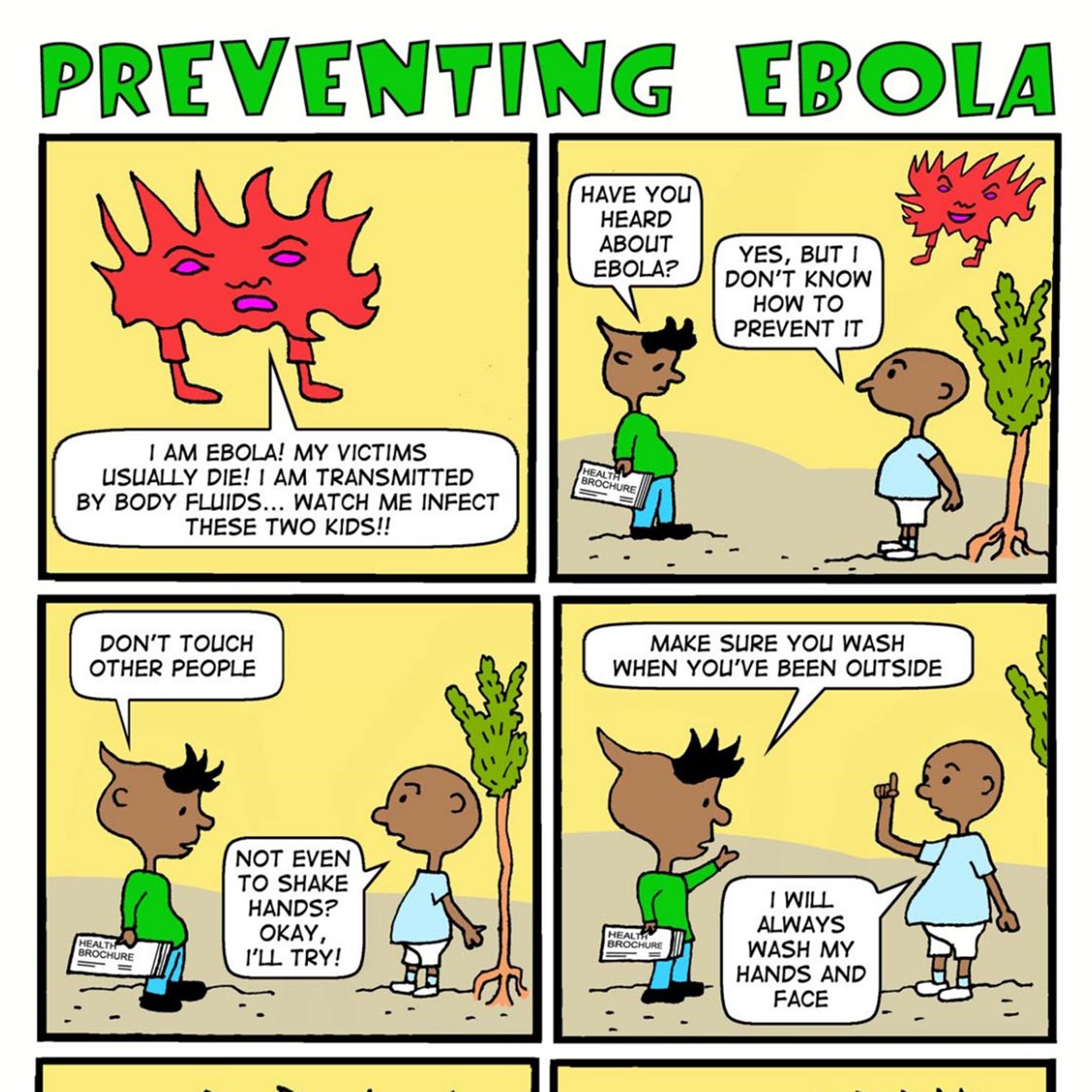Comic relief: Using picture books to warn about Ebola
How do you get the message about Ebola out to people in remote areas without scaring them? In the ‘friendly’ form of a picture book called ‘Stop Ebola’, says Crispin Andrews

“The situation with Ebola reminds me of the early days of HIV,” says Marcus McGilvray, a Newport-born specialist nurse and founder of Africaid WhizzKids United.
“There’s a lot of ignorance about how people catch the disease. Fear and paranoia leads to stigma and discrimination. We want to give people the correct facts and information, but in a friendly way.”
McGilvray’s “friendly way” came about after a visit to Jisonayilli in northern Ghana in the summer, during which he didn’t see a single public health leaflet about the virus. So McGilvray started running workshops – in collaboration with Cardiff University –for 30 youngsters aged 16 to 21 to design comic strips highlighting the dangers and giving information on how to prevent the virus.
Ghana doesn’t have Ebola, but nearby countries in West Africa do – such as Liberia, Sierra Leone and Guinea – so authorities are preparing for the worst. The country’s first “isolation centre” opened last month, and two more are under construction. Last week, medical supplies and protective gear for health workers started arriving from China.
But preparing also means getting the message out to people – and this is where the comic strips come in. In one of the stories, a health visitor encourages a tribal chief to let him look for Ebola victims in the village. In another, a woman takes a test and, to her relief, discovers she only has a stomach bug. She then cleans up her house and garden to protect herself against infectious diseases. A boy tells his friend not to touch other people and to wash his hands and face after he’s been outside. The final story explains that scientists are working on a cure.
McGilvray has been working in Africa for 12 years. His charity runs a health academy in Edendale, just outside Pietermaritzburg, in South Africa. Last year, McGilvray produced a similar, HIV-awareness comic, with young people there. A second academy is planned for Jisonayilli.
Steve Marchant, the British comic strip artist who put the finishing touches to the sketches, says that people better absorb messages that are part-visual, part-verbal. “Young people relate to scary characters,” he says of the comic’s representations of the Ebola virus (a demonic bat and a devil with snakes for horns).
Cardiff University’s visual storytelling expert, Dr Lisa El Refaie, believes that comic characters portray threat without terrifying people. “Photos of people dying of Ebola or healthcare workers in protective suits would cause panic,” she says. El Refaie adds that narratives get health messages across better than information sheets, particularly where literacy levels are low. “Visual language is a formidable tool to convey messages quickly,” she says.
McGilvray says that he targeted the comics at young people because in some rural parts of Ghana they have had a better education than their parents. “Comics are enjoyed and shared by many young people in Africa, and they are easily produced and distributed,”he says.
Stop Ebola is being translated into French, and will be distributed over the coming weeks. Blue Skies, the fruit salad and juices exporter, has provided some funding and McGilvray is speaking to other retailers, aid and development groups – and Liverpool Football Club, which sponsors the health academy in Edendale. The more money he can raise, the more comics he can distribute.
According to the virologist Professor Andrew Eason, from the University of Warwick, targeted distribution is the key to success. “You can never be sure where and when Ebola will appear,” he says. “You might start distributing in areas where people are known to eat bush meat [believed to be the origin of the outbreak], but in these environments it’s difficult to contact people and gain their trust.”
Professor Eason adds that gentler approaches, such as a comic, might have more of an impact in places where people are often suspicious. “An organisation such as Africaid WhizzKids United can achieve a certain level of coverage,” he says, “but for widespread distribution you need an infrastructure and that, ideally, means government involvement.”
Cardiff University plans to approach the Ghanaian Embassy in London for help.
Subscribe to Independent Premium to bookmark this article
Want to bookmark your favourite articles and stories to read or reference later? Start your Independent Premium subscription today.

Join our commenting forum
Join thought-provoking conversations, follow other Independent readers and see their replies